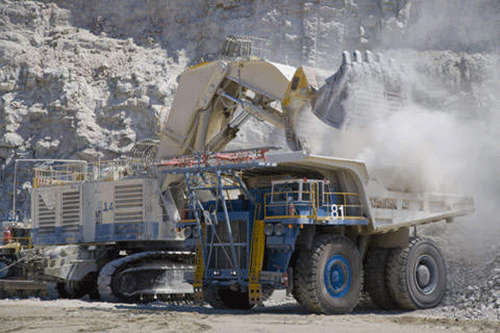Despite the global economic challenges posed by Covid-19, Rössing Uranium says it remains committed to supporting local suppliers and developing Namibian SMEs and in 2020 spent N$2.77 billion locally on goods and services.
Its operations were N$2.77 billion, slightly up from N$2.72 billion in 2019. The bulk of the local spending remains in the Erongo (38%) and Khomas (50%) regions.
The latest stakeholder report from the mine, released on Friday under the theme “Moving forward to the new era” shows that spending within the Erongo region reduced significantly due to Covid and the lockdown measures imposed on the region, which negatively impacted suppliers’ operations.
According to a statement issued by Rössing Managing Director, Johan Coetzee, total procurement from international suppliers amounted to N$227 million, representing 8% of total procurement expenditure, excluding South Africa, where goods and services to the value of N$370 million (14%) of total procurement was spent.
During 2020, Rössing Uranium invested N$25.8 million in Namibian communities, directly as well as through the Rössing Foundation.
“Rössing Uranium has been a feature of the domestic economy for close to 45 years and remains confident that it will continue to be a major supplier of energy to the world, as well as delivering value to shareholders and other stakeholders.”
The report states: “2020 was an unforgettable year in terms of global events and their consequent impact on the uranium industry. With the Covid-19 pandemic hitting the world swiftly and badly during the year, it underlined the importance of electricity reliability and resilience during times of major disruption.”
The report further shows that in 2020, Rössing produced 5.5 million pounds U3O8 or ‘yellowcake’. A total of 2.0 million pounds were shipped to western converters and sold to customers in North America, Asia (excluding China), Europe, the Middle East and Africa (EMEA). A total of four million pounds, including some production from 2019, were shipped to China and sold to China National Nuclear Corporation (CNNC). Rössing stated that it continued to benefit from the contractual sale prices in its historical contract portfolio, as well as the beneficial CNNC off-take agreement, with an average sales price across the entire portfolio well above the average spot price for the year.
Meanwhile, several mitigating actions were taken to maintain mining operations during the year, which included temporary scaled down operations and additional health and safety measures to ensure the health of employees.
The weaker exchange rate and mitigation steps however impacted cost efficiency. In addition, the extreme and sudden devaluation of the Namibia dollar resulted in significant exchange rate losses, both on prepayments for 2020 sales, as well as the foreign currency hedge derivative, which neutralised the exchange rate benefit from the revenue stream, ultimately resulting in a reduced net profit after tax from normal operations of N$443 million (2019: N$503 million). At the end of 2020, Rössing had a workforce totalling 955 compared with 1 000 at the end of 2019, with 98.8% of the workforce being Namibian and only 1.2% expatriates.


